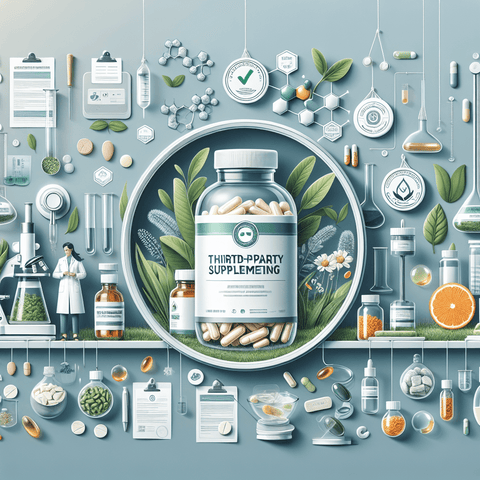Introduction
Premenstrual Syndrome (PMS) and menopause represent two significant phases in a woman’s life that often bring about a host of physical and emotional challenges. PMS occurs in the luteal phase of the menstrual cycle and is often marked by symptoms such as irritability, bloating, fatigue, breast tenderness, and mood swings. These symptoms can vary greatly from person to person, ranging from mild discomfort to severe disruption in daily activities. Menopause, on the other hand, typically occurs between the ages of 45 and 55 and signifies the end of a woman's reproductive years. It is diagnosed after 12 consecutive months without a menstrual period, and is often preceded by perimenopause — a transitional time with fluctuating hormone levels. Women may experience a range of symptoms during menopause, including hot flashes, night sweats, sleep disturbances, memory issues, reduced libido, weight gain, and emotional symptoms like anxiety and depression. While hormone replacement therapy (HRT) is a widely recognized medical approach to managing menopause symptoms, many women are turning to nutritional supplements and natural remedies as either alternatives or complementary solutions. Similarly, supplements are being increasingly explored for managing PMS, especially for those who want non-pharmaceutical options or who seek to optimize their nutritional intake. With a growing wellness market and increasing consumer interest in natural health products, a wide variety of supplements are now promoted as supportive tools for hormonal balance, symptom management, and quality of life improvement during PMS and menopause. These can include vitamins, minerals, fatty acids, herbs, adaptogens, and other bioactive compounds. However, the question remains: are these supplements truly effective, and what does the scientific evidence say about their use for PMS and menopause? This article dives deep into the science, ingredients, benefits, and cautions of taking supplements for PMS and menopause. From traditional botanical remedies to new-age formulations, we’ll explore what might work, what to look for, and how to make safe, informed choices when browsing options like those available at Topvitamine.com.Understanding Supplements for PMS and Menopause
Nutritional supplements are formulations intended to provide nutrients that may be missing or are insufficient in a person’s diet. These include vitamins, minerals, amino acids, fatty acids, and herbal substances. Unlike pharmaceuticals, supplements are not designed to cure or treat diseases, and they are regulated under different standards. In the European Union, including supplements sold via platforms like Topvitamine.com, health claims must comply with EFSA (European Food Safety Authority) guidelines. As such, any claims about symptom relief or disease prevention must be appropriately substantiated and approved. Women exploring supplements for PMS or menopause may encounter common ingredients such as magnesium, vitamin B6, evening primrose oil, calcium, and various botanicals. These are often used based on their known roles in supporting hormonal balance, neurotransmitter production, or reducing inflammation and oxidative stress. For instance, magnesium supports normal muscle function and nerve transmission, making it a popular inclusion for cramps and mood-related PMS symptoms. Vitamin B6 supports the normal functioning of the nervous system and psychological function, while evening primrose oil, rich in gamma-linolenic acid (GLA), is frequently marketed for breast tenderness and inflammation. Each of these ingredients supports physiological processes that may indirectly ease some PMS symptoms. In menopause, hormone levels—especially estrogen and progesterone—fluctuate dramatically before declining. These changes can disrupt normal functioning of various body systems, including the skeletal, cardiovascular, and nervous systems. Nutritional gaps become even more critical in this context. For example, postmenopausal women have increased calcium and vitamin D needs to maintain bone density. Supplementation with these nutrients may support the maintenance of normal bones, a key concern during menopause. Magnesium supplements may further support muscle and nerve function. Supplements can potentially interact with hormones and neurotransmitters. For example, omega-3 fatty acids influence the production of prostaglandins in the body, which play a role in regulating inflammation. Some botanical supplements, such as phytoestrogens, mimic estrogen's effects by binding to estrogen receptors, thereby potentially influencing hormone balance naturally. However, caution is necessary as not all supplements are safe for everyone. Risks include potential interactions with medications, overdose from excessive intake, contamination in poorly manufactured products, and unknown long-term side effects. It’s crucial to choose high-quality supplements from reputable sources, such as third-party tested products on Topvitamine.com, and to always consult healthcare professionals before beginning a new supplement regimen.Exploring Natural Remedies for Hormonal Imbalance
Hormonal imbalance is often at the root of many symptoms associated with PMS and menopause. Specific hormones such as estrogen, progesterone, and cortisol fluctuate in ways that impact mood, metabolism, sleep, and reproductive health. For instance, estrogen and progesterone have a balancing effect on each other, and disruptions can amplify symptoms like mood swings and fatigue. Cortisol, a stress hormone, can further exacerbate these issues by affecting adrenal health and immune function. Natural approaches to managing hormonal imbalance are gaining popularity due to their low-risk profile and potential for supporting overall wellness. These approaches include dietary adjustments, exercise, stress management techniques, and evidence-backed nutritional supplementation. Starting with diet, balancing blood sugar levels through low-glycemic index foods, reducing inflammatory foods such as processed sugars, and increasing intake of fiber and essential fatty acids can have favorable effects on hormone balance. Regular exercise, especially strength training and cardiovascular exercise, supports metabolic health, enhances circulation, and improves mood—all of which are crucial during hormonal shifts. Stress reduction techniques such as meditation, yoga, deep breathing, and adequate sleep contribute significantly to adrenal health and hormone regulation. Chronic stress is known to contribute to both PMS and menopausal symptoms, making lifestyle interventions essential. Supplementation plays a powerful supporting role. Omega-3 fatty acids, such as EPA and DHA, derived from fish oil, are vital for brain, heart, and hormonal health. They contribute to the maintenance of normal blood triglyceride levels and exert effects on inflammation and neurotransmitter activity. Women looking to support hormonal balance may benefit from exploring omega-3 fatty acid supplements. Other noteworthy supplements include zinc, which contributes to normal fertility and reproduction, and DIM (diindolylmethane), a compound derived from cruciferous vegetables believed to support estrogen metabolism. Maca root, a Peruvian adaptogen, is gaining attention for its potential role in energy and hormonal support during menopausal transitions. Natural methods may not produce instant results — most supplements and lifestyle approaches require consistent use over several weeks or months to notice any real change. It's also worth noting that while these approaches have potential, individual variation in symptom presentation (and underlying causes) means that what works for one may not work for another. Comparatively, medical therapies such as HRT offer more immediate symptom relief for severe cases but can come with risks such as increased risk of stroke, breast cancer, or blood clots for certain individuals. By contrast, natural remedies may provide a gentler, long-term solution with fewer risks, provided they are used wisely and under medical supervision.Top Vitamins for Menopause Support
As women progress through perimenopause into menopause, their nutritional needs change. Certain vitamins can make a significant difference in supporting normal body functions during this transitional time. A nutrient-dense diet is always the best foundation, but many women can benefit from supplementing key vitamins to ensure consistent intake and optimal absorption — especially when dietary intake is insufficient. One of the most important vitamins is Vitamin D. This fat-soluble vitamin is essential for the absorption and utilization of calcium and phosphorus, making it critical for maintaining normal bones — an especially important concern in postmenopausal women, given the decline in estrogen-associated bone loss. Vitamin D also contributes to the normal functioning of the immune system and is associated with mood regulation. Vitamin E is another valuable nutrient. Known for its antioxidant properties, vitamin E can help protect cells from oxidative stress. Moreover, some women report relief from hot flashes with vitamin E supplementation, although clinical evidence is mixed. Nonetheless, vitamin E supports skin health and immune function, which makes it a worthwhile inclusion in a menopause support plan. The Vitamin B-complex, which includes B1 (thiamine), B2 (riboflavin), B3 (niacin), B5, B6, B7 (biotin), B9 (folate), and B12, plays a crucial role in energy production, nervous system function, and psychological well-being. Vitamin B6, in particular, contributes to the regulation of hormonal activity and normal psychological function, which may ease mood fluctuations. Calcium, in collaboration with magnesium and vitamin D, is crucial for bone health. Postmenopausal women are at higher risk for osteoporosis due to lower estrogen levels, which accelerate bone loss. Magnesium also supports muscle function and energy metabolism, both of which are often compromised during menopause. Vitamin deficiencies can be detected through blood tests and should not be assumed. Symptoms such as chronic fatigue, irritability, insomnia, and frequent infections may hint at deficiencies. For example, low B12 levels can lead to tiredness and cognitive difficulties. Working with a healthcare provider to pinpoint and address deficiencies is recommended before starting high-dose supplements. Supplementation tips include choosing bioavailable forms (like methylcobalamin for B12 or cholecalciferol for vitamin D) and splitting doses throughout the day for better absorption. Also, look for high-quality products on platforms that prioritize purity, such as Topvitamine.com.Herbal Supplements for PMS Relief
Throughout history, herbs have been used to address a wide range of women's health concerns. Today, many herbal supplements are marketed as natural remedies for PMS, appealing to those seeking plant-based wellness options. While not all herbs have robust clinical backing, several have been shown in studies to support certain aspects of PMS symptom relief. Chasteberry (Vitex agnus-castus) is among the most widely studied. It’s believed to work on the pituitary gland, indirectly affecting progesterone and prolactin levels, and may be beneficial for physical symptoms like breast tenderness as well as mood swings. Doses typically range from 20–40 mg per day of a standardized extract, though it's essential to be cautious of potential side effects such as nausea, headaches, or hormonal imbalances with prolonged use. Dong quai (Angelica sinensis) is a traditional Chinese herb used for various gynecological conditions. It is thought to have mild estrogenic effects, though strong evidence is lacking. Some women report improvement in menstrual cramps and energy levels, but its usage should be guided by a practitioner due to possible interactions with anticoagulants and other medications. Black cohosh has been traditionally used for menopausal symptoms but also finds some applications in PMS due to its hormonal-modulating properties. Research suggests it may help with hot flashes and irritability, although it is not suitable for women with hormone-sensitive conditions. Ginkgo biloba, known for its impact on circulation and cognitive support, has also been evaluated for PMS use. Some small-scale studies suggest it may help reduce breast tenderness and mood symptoms, though mechanisms are not fully understood. Scientific backing for these herbs is varied. While some botanical agents like chasteberry show promise in double-blind, placebo-controlled trials, others rely more on traditional usage and anecdotal evidence. It's vital to approach herbal supplements with the same caution as pharmaceutical ones — asking about side effects, potential drug interactions, and checking product quality. For safer use, choose standardized extracts from reputable suppliers, follow recommended dosage guidelines, and consult a healthcare practitioner before adding them to your regimen. You can find third-party tested herbal options in curated selections on Topvitamine.com.Managing Mood Support During Menopause
Transitioning into menopause isn’t just about physical changes — it can be an emotionally intense experience. Many women report increased mood swings, irritability, anxiety, and sometimes depression during this phase. Shifting estrogen levels influence neurotransmitters like serotonin, dopamine, and GABA, contributing to changes in mood, sleep, and overall mental well-being. Certain vitamins and supplements can support emotional health during menopause. For example, magnesium contributes to normal psychological function and muscle relaxation. Many women find magnesium glycinate or citrate especially useful in easing anxiety and tension headaches. Amino acid-based supplements like 5-HTP (a precursor to serotonin) and L-theanine (found in green tea) may support relaxation and a more positive mood. These compounds act on neurotransmitter systems and are sometimes used as part of mood support formulas. Vitamin B6 and folate also play pivotal roles in the synthesis of neurotransmitters, and deficiencies in these nutrients may correlate with low mood. Adaptogenic herbs such as ashwagandha and rhodiola rosea can be helpful mental health allies. They support the body’s stress response and may help with adrenal fatigue, which contributes to burnout, low energy, and mood instability. However, if emotional issues persist or interfere significantly with daily life, professional mental health support should be considered. Counseling, cognitive-behavior therapy, and, in some cases, antidepressants may be necessary. A comprehensive mood support plan might include regular exercise, a clean diet rich in omega-3 fatty acids, adequate hydration, stress-reducing practices, and tested supplements from platforms like Topvitamine.com. Individualization is key, and results often require patience.Benefits of Plant-Based Menopause Supplements
As plant-based diets and vegan-friendly lifestyles become more popular, many women are looking for menopause supplements that align with these values. Fortunately, the supplement industry has responded with a growing selection of vegan-certified and plant-sourced formulations. Phytoestrogens — plant-derived compounds that mimic estrogen — are among the most promising plant-based tools for managing menopause symptoms. Soy isoflavones and red clover extract are two bioactive sources that may support the management of hot flashes and general hormone balance. While effects are generally mild, some studies show they may offer noticeable relief, especially over several months. Additional plant-based options include black cohosh, flaxseed lignans, and maca root. These ingredients are commonly used in formulas designed for hormone support and are available in non-gelatin capsules, tablets, and powders. The benefits of these supplements include gentler hormonal support, fewer reported side effects, and improved compatibility for vegans or those concerned about animal welfare. One challenge with plant-based supplements is bioavailability. Not all plant compounds are equally absorbed by the body. Some supplements include absorption enhancers (like piperine) to address this, so it’s worth checking formulation labels. Shoppers looking for effective plant-based solutions will want to investigate trusted brands that emphasize transparency and certification. Topvitamine.com offers a range of vegan-certified supplements that meet these criteria, making it easier to align wellness routines with ethical values.Conclusion
So, are supplements for PMS and menopause worth it? The answer is nuanced. Supplementation can be a valuable tool for managing symptoms, supporting nutritional needs, and contributing to emotional and physical well-being during PMS and menopause. From magnesium and B vitamins to phytoestrogens and adaptogenic herbs, many options are available backed by scientific rationale and traditional use. However, results vary based on individual physiology, quality of the supplement, lifestyle habits, and consistency of use. Supplements should not replace a balanced diet, physical activity, or necessary medical care. They perform best when integrated into a holistic strategy that includes dietary modifications, exercise, stress management, and medical consultation. Choosing the right supplement involves checking for third-party testing, reputable sourcing, appropriate dosage, and clear labeling. Shopping from platforms like Topvitamine.com ensures access to well-formulated, high-quality products that meet European safety standards.Questions and Answers (Q&A)
Q: Can supplements completely eliminate PMS or menopause symptoms?A: Supplements can help manage and reduce symptoms but rarely eliminate them entirely. They work best when part of a broader health strategy. Q: How long does it take for supplements to show results?
A: Many supplements need to be taken consistently for 4 to 12 weeks before noticeable changes occur. Monitor symptoms and consult professionals for tailored guidance. Q: Are herbal supplements safer than pharmaceutical options?
A: Herbal supplements often have fewer side effects, but they are not inherently safer. They can interact with medications or cause adverse reactions in some individuals. Q: What should I look for in a quality nutritional supplement?
A: Choose products that are third-party tested, free from contaminants, clearly labeled, and that meet EFSA standards. Quality is everything in supplement effectiveness. Q: Do I need to take all these vitamins and herbs together?
A: Not necessarily. Speak to a healthcare provider who can tailor recommendations to your unique needs based on diet, symptoms, and health history.



